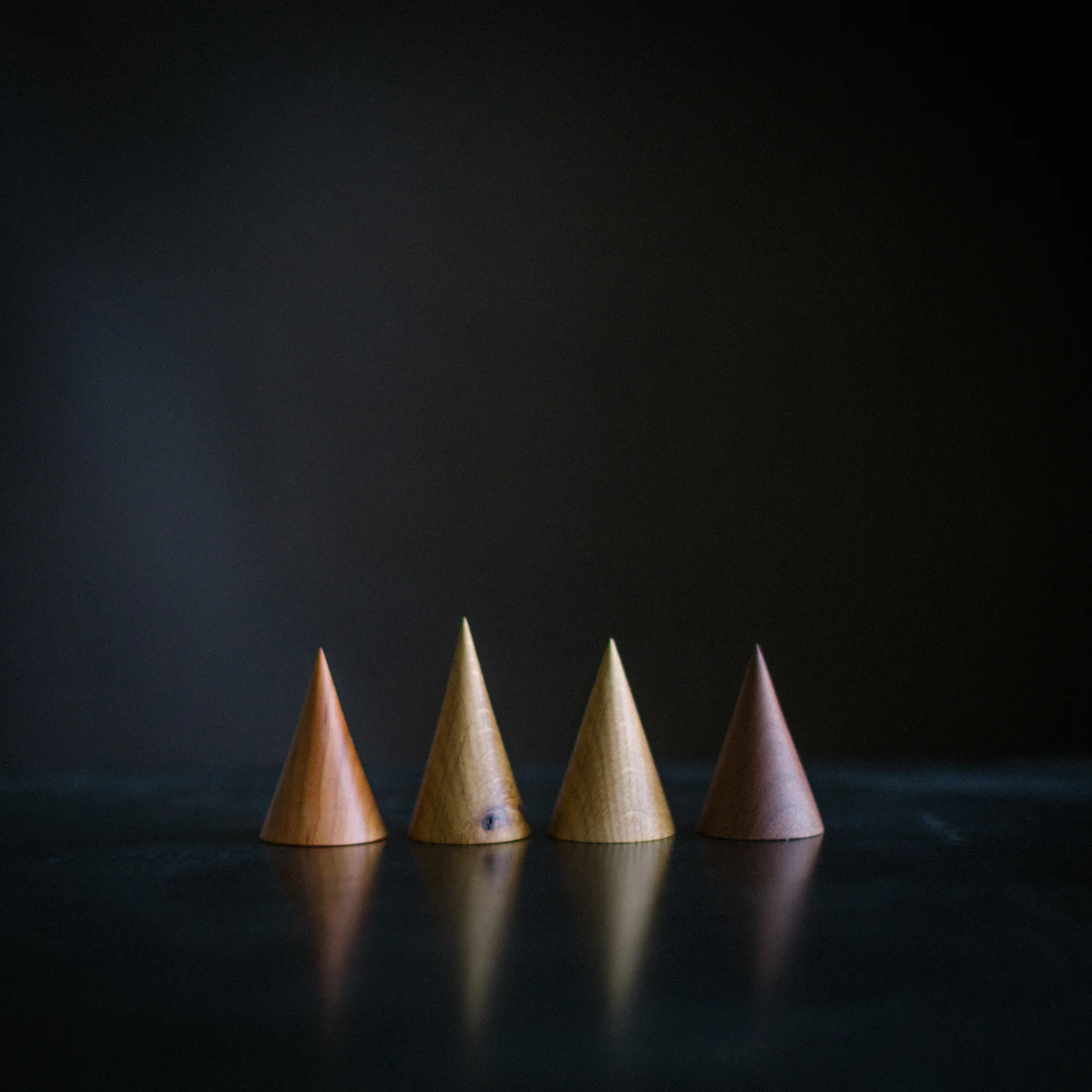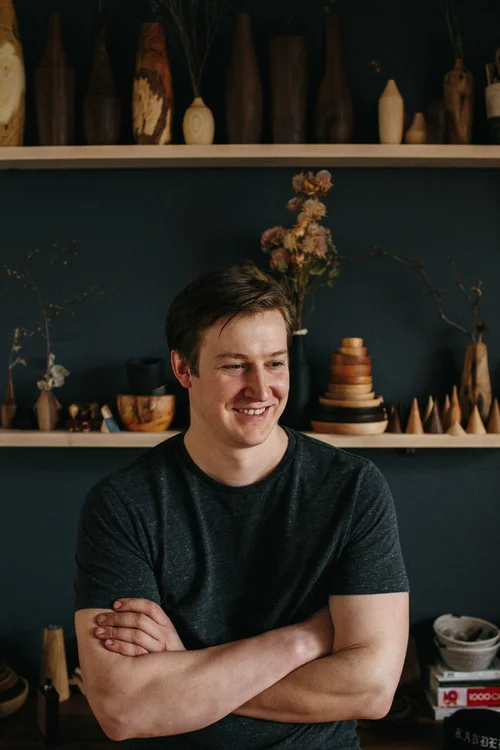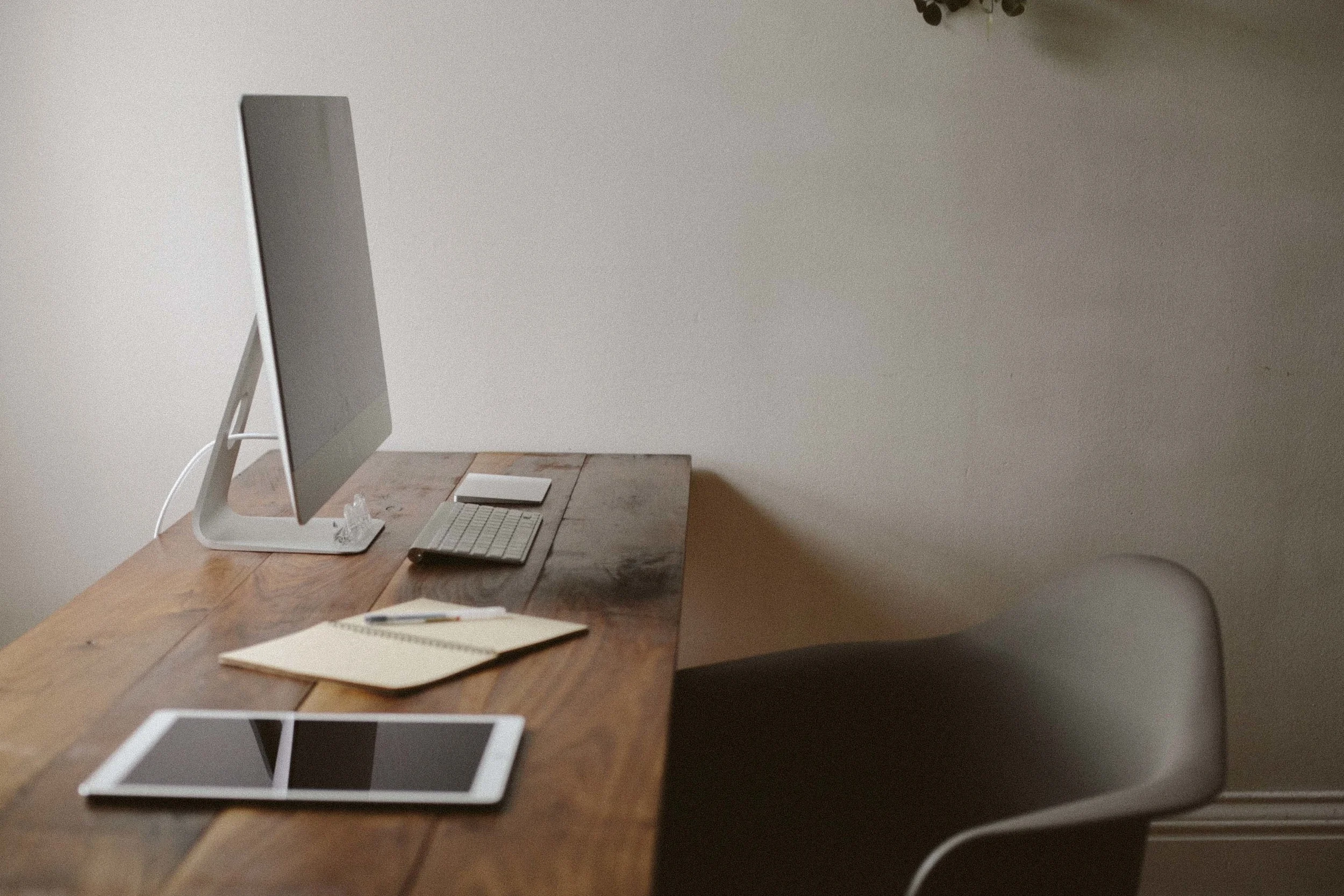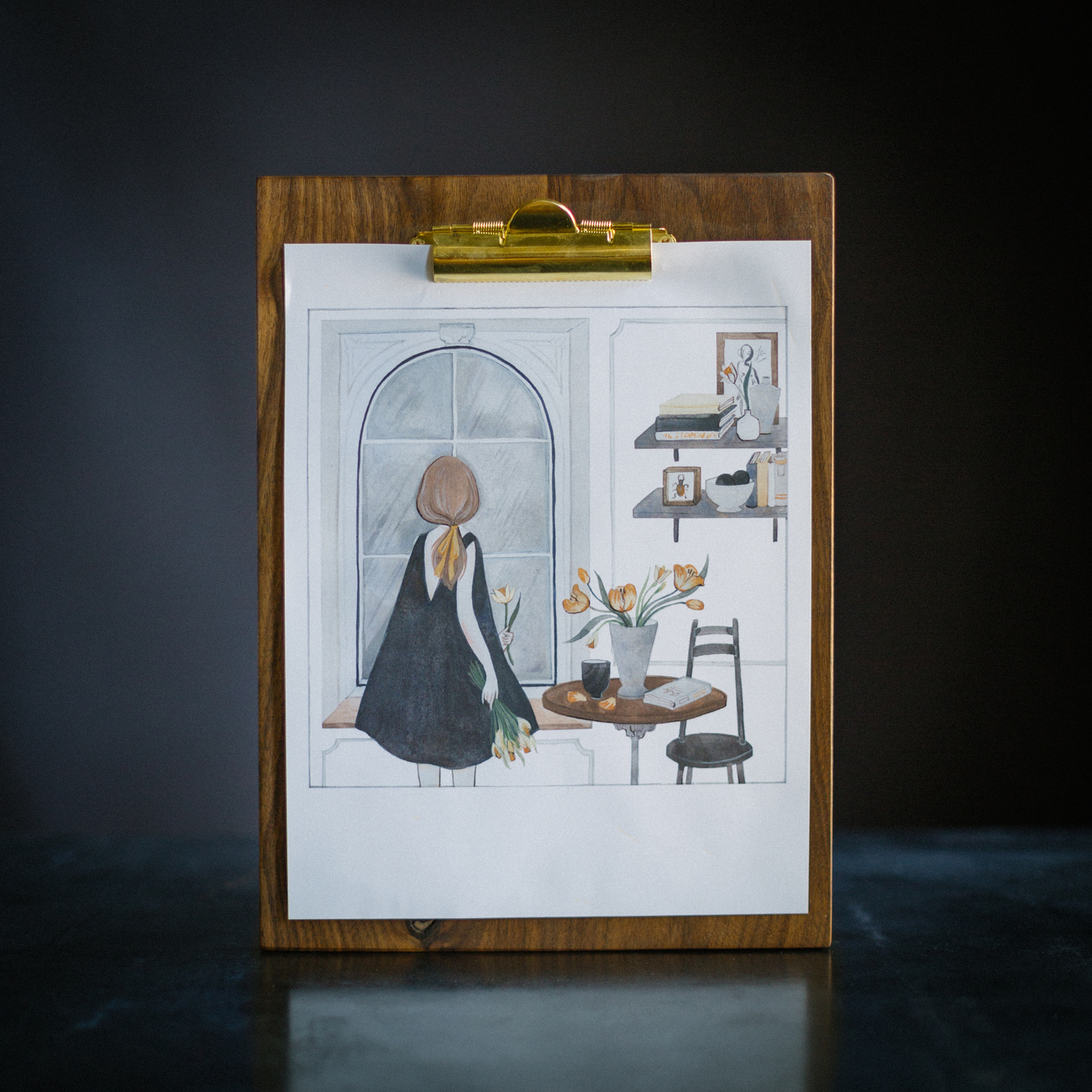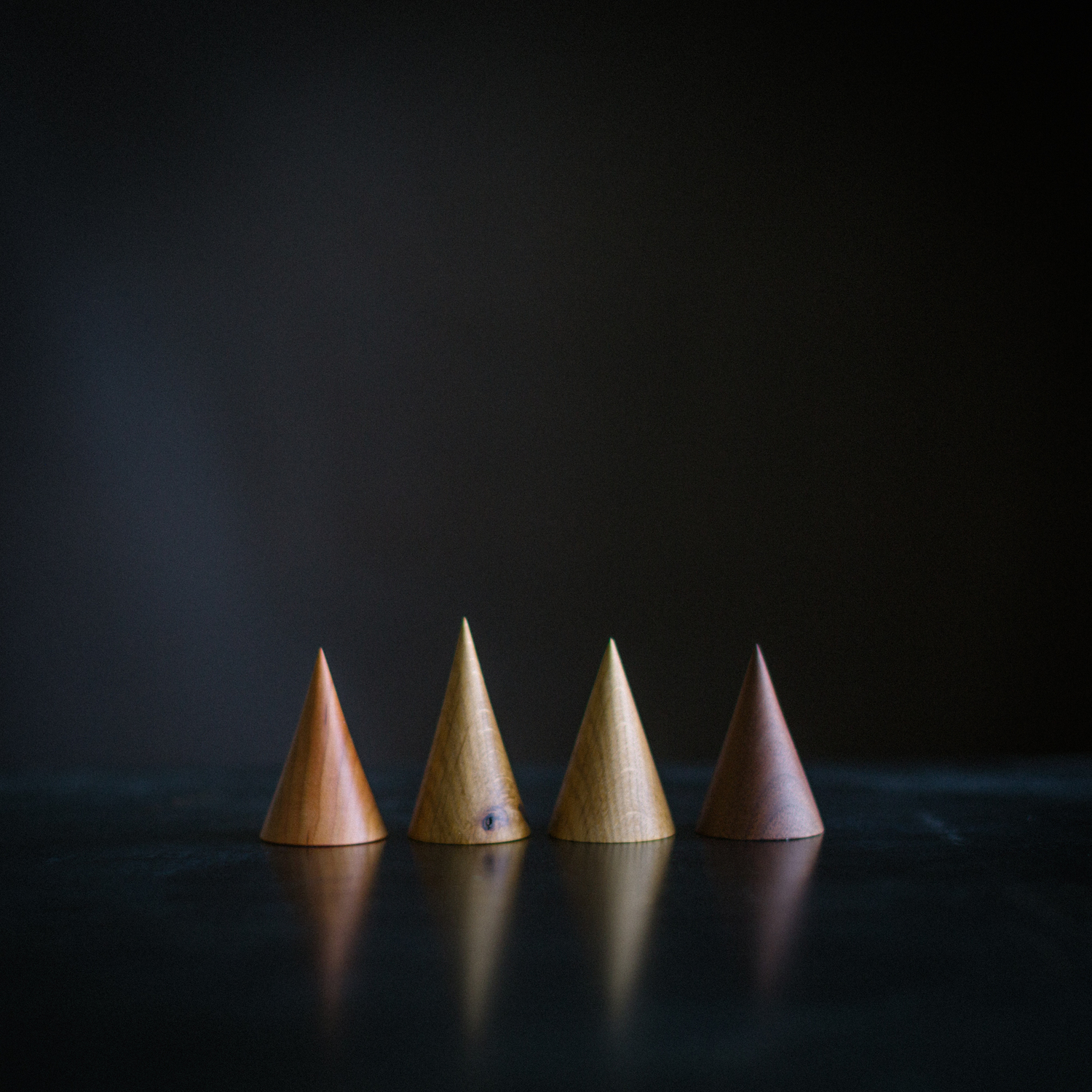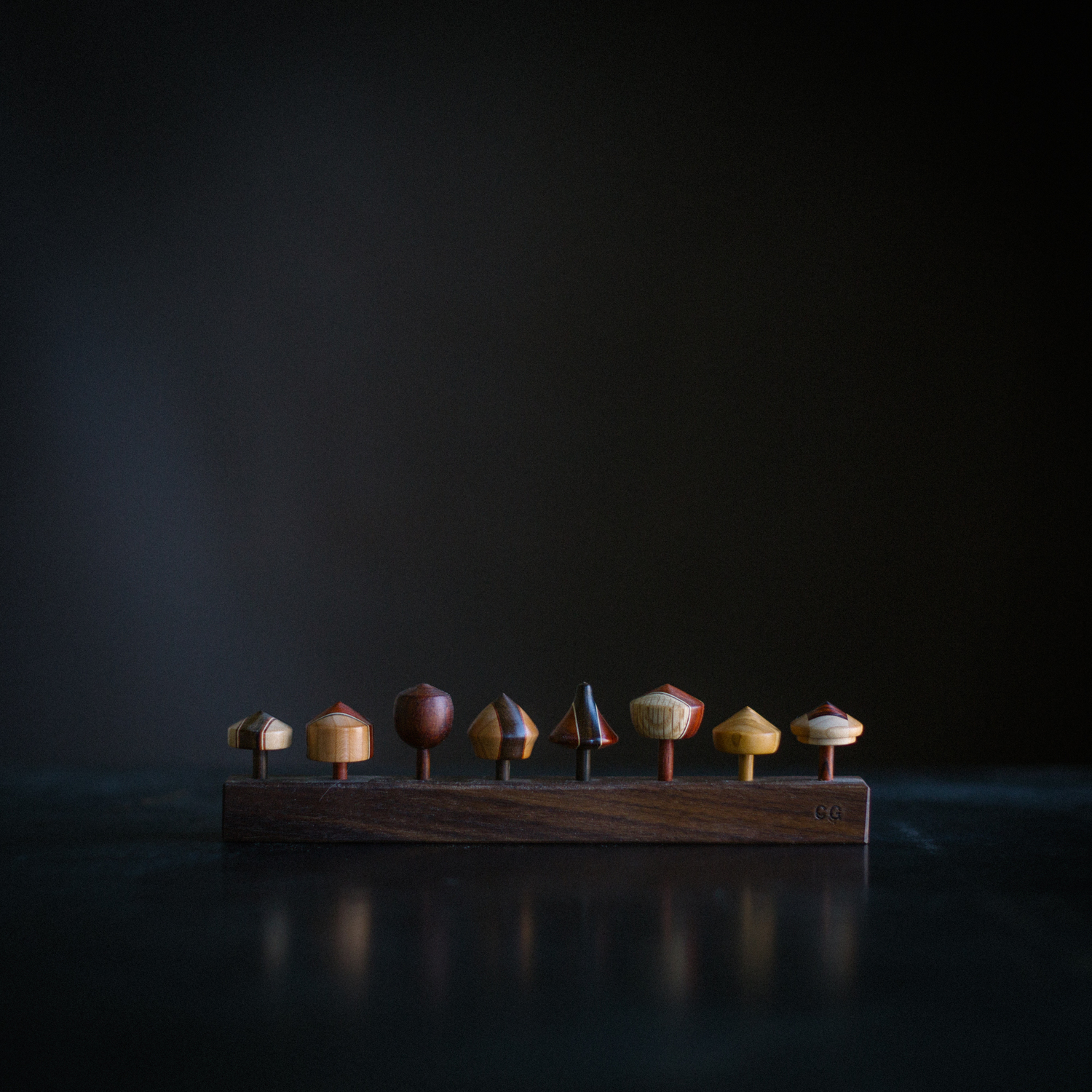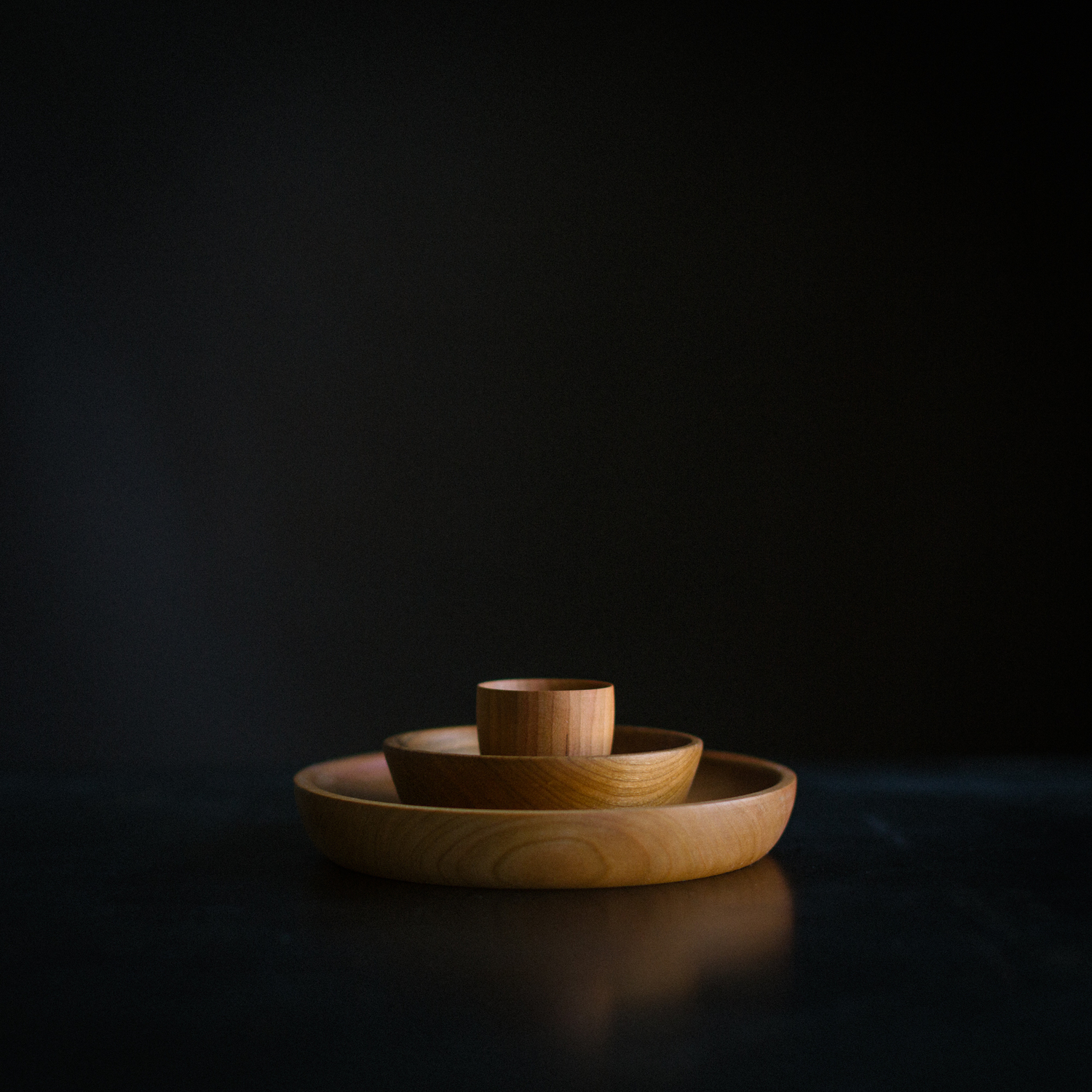Minimalism Meets Woodworking
by Astoria Jellet Photographs by Marcus Stabenow & Sean Funcik
About a year ago, I stopped by St. Louis on a road trip to see some friends, a couple. They were busy packing for a trip to see her folks, but I brought them some beer and we chatted while they cleaned up. I count that simple exchange as one of the most beautiful nights of my life, and I have a souvenir to remember it by: a dried marigold from her in a walnut vase made by him.
He is Collin Garrity, a woodworker I met through her, Shannon Craig, a writer and a force in her own right. Collin studied poetry at Warren Wilson College, and back then woodworking was a way to escape the structure and deadlines of academia. He still escapes into woodworking in their single-car garage-turned-woodshop. As he once told me, “creating something new is an addiction.”
His newest creation is what he calls “an everyday folding table,” but there’s nothing ordinary about it. In fact, I don’t think I’ve seen anything like it. It’s a folding table, sure, but not like the thick grey plastic ones from every awful conference you’ve ever sat through, the ones futilely cloaked in white tablecloths or worse, plastic. In a Kickstarter video, Collin explains that sometimes you need a folding table, but the ugliness of the traditional design makes it useless for your purpose - a kind of chindogu, an “unuseless” object.
Collin makes an interesting point: that being beautiful is a part of being useful.
I can’t think of a better way to describe his work. Tactile, interactive, and stunning, his objects are things with which I dream of filling my home: abstract chess sets, wooden bowls, spinning tops, his “writer’s block” lamp, all in shades and textures of wood I haven’t yet learned to name. And now, I dream of sitting at this table, juxtaposed with white walls and bathed in filtered sunlight. There’s something very In Praise of Shadows about it.
“When you walk into your apartment after work, you set your things down on the table, you put your keys there. It’s the kind of thing you use all the time, even when you’re not thinking about it,” he says. “I think my table can make that experience a little more beautiful to some people. If it makes them enjoy those menial parts of their day a little bit more, then I’ve succeeded.”
In an email to me he added, “I made sure it would look beautiful even leaning against a wall.”
It does.
Like the vase he kindly gave me, the Everyday Folding Table has a top made of walnut. (The legs are white oak.) “You can scratch walnut, you can spill coffee on walnut, and it only gets more beautiful,” Collin says, “so twenty years from now that’s gonna look like a well-loved table and not the kind of thing you need to replace.”
He’s been working on the design for years. In fact, perusing old notes, I see that he mentioned this project before in passing, but dismissed it, saying “it’s for the birds.” Instead, he’d wanted to discuss his work for Shinola, Prospector Co., and Paris fashion house LEMAIRE. But he doesn’t have to fall back on them anymore. Like his dream table, he’s looking to stand on his own.
Hence the Kickstarter, which will fund not just the Everyday Folding Table but also an upgraded shop, which he currently runs out of his and Shannon’s one-car garage in a suburban St. Louis neighborhood. It’s been a long and patient drive. “When I started woodworking, I was in college. I worked on a fishing boat in the summers and I had two part-time jobs. I would walk to the school's woodshop late at night and on weekend mornings. I ended up getting a job at that woodshop building classical guitars, but for every fifteen hours I would spend on the clock, I would spend another twenty working on my own project.” Collin adds, “My personal projects took about three years to produce a paycheck.”
“I think my table can make that experience a little more beautiful to some people. If it makes them enjoy those menial parts of their day a little bit more, then I’ve succeeded.”
Woodworking has a steep learning curve: learn to make a bowl, and that’s about all you can do. Every new object is another craft to master. “I could easily have a lucrative business turning out one size and shape of wood bowl,” Collin says. “But what I love about wood is that every piece has the potential to look and be different. And what I love about woodworking is that you can make anything, and there are a dozen different ways to get the same result.”
It’s the kind of patience we deeply admire and dearly lack today. “Our generation tends to take the first painting we do and frame it,” Collin says. “Whereas old masters would paint the canvas white again, paint a picture, paint it white, and repeat.” We make myths about geniuses like Mozart composing whole symphonies instantly in their minds, or Michelangelo painting the entire Sistine Chapel ceiling, solo. A lot of us are still stuck on these romantic notions of mastery as something innate and as instant as ramen, but it feels like a copout, an excuse for those of us who weren’t “born with it.”
But Collin, as he’ll tell you, wasn’t born with it. He’s just worked really, really hard. It’s taken him years to design his minimalist Everyday Folding Table, and most of that time was filled with stunted ambition and stubborn persistence. His grit is a thing to admire. And so is the result.
No, there is nothing everyday about Collin Garrity.

